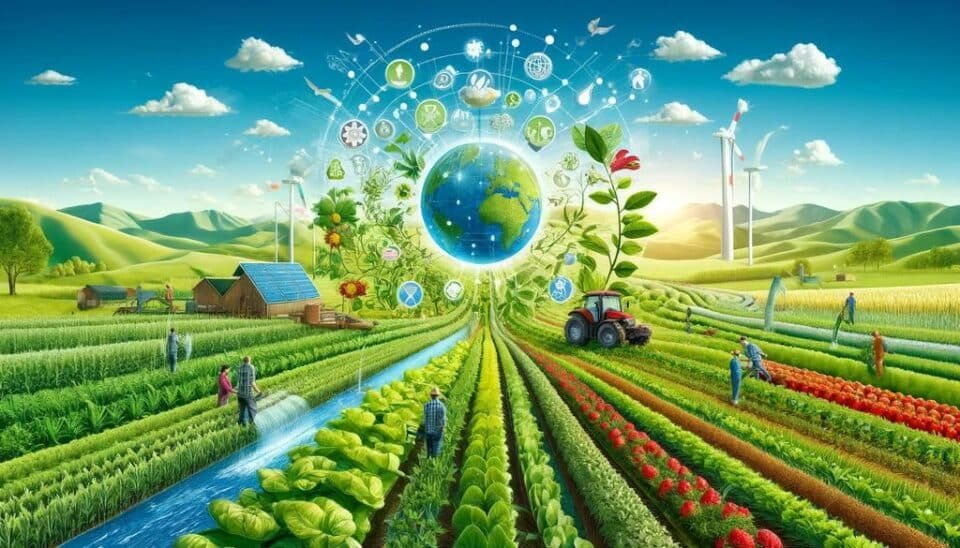Climate-Smart Agriculture: The WRG’s Role in Addressing Water Scarcity and Global Emissions
The World Bank’s 2030 Water Resources Group (WRG) promotes sustainable agriculture by expanding water-saving methods, lowering greenhouse gas emissions, and increasing productivity through public-private partnerships. Its projects, such as Low Methane Rice and innovative irrigation methods in India and Bangladesh, improve climate resilience and food security globally
The World Bank’s 2030 Water Resources Group (WRG), a global public-private partnership, is spearheading efforts to solve water scarcity in agriculture, which accounts for 70% of total freshwater withdrawals. WRG, which operates as a trust fund under the World Bank, works with businesses, governments, and civil society to create innovative water management solutions while also promoting climate-resilient food systems. Climate change poses severe obstacles, making these initiatives critical as farmers struggle to satisfy global food demands. WRG encourages micro-irrigation for water efficiency, better agriculture practices to reduce greenhouse gas emissions, and market innovations that increase agricultural output and mechanization. By driving these sustainable practices, WRG helps secure stable food supplies, increase farmers’ earnings, and save crucial water resources.
WRG’s Low Methane Rice effort is one of its ground-breaking projects, with the goal of having revolutionary environmental and agricultural consequences. Building on the success of India’s Uttar Pradesh PRAGATI Accelerator, the initiative aims to scale up initiatives to reduce methane emissions, improve water efficiency, and increase yields in important rice-growing regions throughout South and East Asia. This unique program demonstrates WRG’s ability to use public-private partnerships to achieve daring solutions that were previously thought impossible. By duplicating established models such as PRAGATI, WRG positions itself as a leader in reducing emissions and promoting climate-resilient agriculture. This initiative demonstrates how sustainable techniques can meet both global environmental issues and local agriculture demands.
WRG’s Low Methane Rice effort is one of its ground-breaking projects, with the goal of having revolutionary environmental and agricultural consequences. Building on the success of India’s Uttar Pradesh PRAGATI Accelerator, the initiative aims to scale up initiatives to reduce methane emissions, improve water efficiency, and increase yields in important rice-growing regions throughout South and East Asia. This unique program demonstrates WRG’s ability to use public-private partnerships to achieve daring solutions that were previously thought impossible. By duplicating established models such as PRAGATI, WRG positions itself as a leader in reducing emissions and promoting climate-resilient agriculture. This initiative demonstrates how sustainable techniques can meet both global environmental issues and local agriculture demands.
Beyond India and Bangladesh, WRG’s creative programs serve as models for other regions with comparable difficulties. In Karnataka, India, WRG established the world’s first large-scale community drip irrigation project, lowering water abstraction by 24 million cubic meters and duplicating the idea on an additional 100,000 hectares. In Kenya, WRG pioneered a funding strategy that allowed smallholder farmers to gain access to sophisticated irrigation systems, helping 500 farmers and encouraging the wider growth of farmer-led irrigation programs. Meanwhile, in South Africa, WRG launched the country’s first automated water administration system, decreasing water distribution losses by up to 20% and expanding the model to 21 major irrigation systems. These projects demonstrate WRG’s ability to provide scalable and meaningful solutions that boost productivity while conserving water.
Over the last decade, WRG’s initiatives have proved the power of public-private partnerships to address the interconnected concerns of water scarcity, agricultural production, and climate resilience. By combining local knowledge with global expertise, WRG has enabled farmers in Africa and Asia to implement novel solutions that increase yields while minimizing environmental impact. From pioneering low-methane rice cultivation to expanding irrigation improvements, WRG’s projects have established new standards for sustainable water management. These measures have not only addressed current issues, but have also established long-term routes for resilience and growth. By ensuring food security, safeguarding natural resources, and lowering emissions, WRG continues to play an important role in addressing some of today’s most critical concerns. With an emphasis on collaboration, innovation, and sustainability
The World Bank's 2030 Water Resources Group

